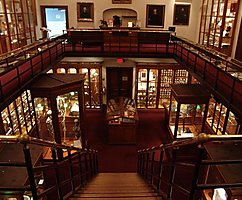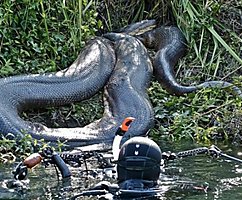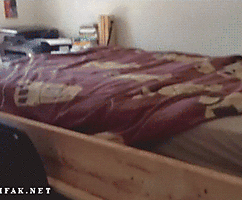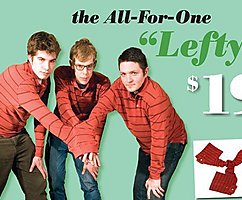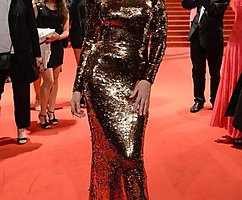Do You consider yourself smart?
 Bashny.Net
Bashny.Net
Enta text about ants. About how they organize their community, how to choose a profession, as showing the genius, wit, and heroism. It is also a text about people. Because when we talk about animals, even about the smallest, we mean ourselves.
The brain of a normal forest ant tens of thousands of times less than mine. And know how this creature very much. In this respect there is a great quote: "Ants are so much like us humans, even a bit awkward. They grow mushrooms, make aphids as milk cows, are sent to war army soldiers who sprayed the chemicals to scare and confuse the enemy, taken captive slaves, exploited child labor and constantly share information. In short, do everything except do not watch TV" (Lewis Thomas).
Vocational guidance in the anthillNovosibirsk biologist Zhanna Reznikova is one of the most famous in our country experts on the behavior of ants and other animals. Yes, not only in Russia — her book Animal Intelligence: From Individual to Social Cognition was published by Cambridge University.
During one of her recent experiments, there was a story, which can be seen as a parable about the role of intellectuals in any society, whether human or ant.
— It all started with the fact that the employee my lab Ivan Yakovlev was preparing a thesis, the meaning of which can be reduced to the statement: "the Ant chooses a profession or occupation — an ant?"It turns out that this profession chooses, — says Zhanna Reznikova me. — Almost like people. There is a set of qualities: aggressiveness, intelligence, initiative, speed of reaction, ability to interact with others. Depending on them, the ant gets his profession. For example, there are specialty — security guard. It is given to those individuals who show aggression early. The intelligence they have, of course, too, but not so developed: the soldiers do not care to argue — they have no hesitation to rush to protect shared resources.
Other profession — collectors PADI. In a sense, the ants have their Pets. Aphids feed on plant SAP and secrete drops of a sweet fluid, called honeydew. Between ants and aphids have mutually beneficial cooperation. The ants collect honeydew, which is a delicious and nutritious food, the main source of carbohydrates. And in return is protective of their green cows from predators.
Among honeydew collectors also have a division of labor. You can, of course, alone to get a coveted drop of sweet liquid and to carry it to the anthill. But it is irrational from the point of view of logistics. Therefore, there are ants who work as shepherds (or better to call them milkers?): they tickle the aphids, providing a high milk yield. And the resulting products transporterowych other. In General, come to think of it specialists in personnel management.
Ninety million five hundred two thousand one hundred twenty eight
To track the actions of each ant, the scientists carefully mark them with paint
Here are some of the conclusions of the thesis of Ivan Yakovlev:
"Representatives of different functional groups in the family of ants significantly differ in terms of their behavioural repertoire of avoidance reactions danger of manifestations of aggressive and exploratory behavior and ability to accumulate experience clashes with the "enemy". Ants with low levels of aggression, able to avoid danger, be pickers PADI. Aggressive individuals, not avoiding enemies, spetsializiruyutsya as hunters and guards. <...>
The final shaping of the behavior of red ants, probably is based on not only physiological maturation and the accumulation of individual experience, but also through social learning."
Much the same happens in humans-teenagers. There are those who are less thinking and more wants to work with his fists, — a kind of reckless boys. After school they go into the army, going to serve in the police or the same guards. There are those who are careful, act with caution, think more about the benefit and is able to calculate. They become businessmen and managers, are seeking more money to provide his family with wealth and comfort.
Stuffed tit helps to understand the natureFor high school students designed special tests. Some check on intelligence, other professional personal preference of the type "person — person", "person — equipment", "man — sign system", "man — artistic image" and "man — nature". Not always these tests are useful when choosing a profession (in our education with this all the trouble), but at least it's a human teenager, you can directly ask: "what do you want to be?"And sometimes even get a response. Ants-teenagers are less talkative.
To reveal the personal preference of ants in the laboratory have developed a battery of tests. Zhanna Reznikova generally famous worldwide for its unique research methods).
For example, to check aggression, ant-test were put on a special arena, and then there is placed the beetle — the main enemy in the natural environment. And monitor the nature and length of the reactions.
Seventy eight million fifty five thousand three hundred seventy six
Stranglehold. Meeting with beetles makes it clear who are willing to go to the end.
— The ant death grip like a bulldog. It can break in two, but jaws it if you grabbed the enemy, not unclench. This behavior is common among those individuals who perform the function of the guard, — said Reznikov. — Ants-hunters close to the guards, they also have high aggression. But hunters are more evident and more research activity, they are more likely to engage in social contacts. And most importantly, aggression has its limits, it usually does not reach the stranglehold, which means that the hunters are not so risk averse.
To test the ability to avoid danger used the following experiment. Ants were placed in a small arena, which was a twig with aphids. After some time, the PADI collectors started their work under the protection of soldiers, and the soldiers were guarding them. After that, the researchers simulated attack Tits. We have used several versions of the stimulus: a stuffed bird, a white cone, black cone, cone with eyes-beads. It turned out that the closer the stimulus is to reality, the more likely it will cause a reaction of ants. An especially important sign is the presence of eyes. The threat from the guards reacted, and collectors PADI, as it should be the civilians relied on their defenders.
Twenty six million nine hundred forty three thousand eight hundred nineteen
Fake tit helps to understand who the true warrior ants, and who is the peaceful shepherd
When trains a teamOne of the most important questions in psychology: to what extent are the personal qualities of the person are determined by genes and which are influenced by family, school, society? He is also concerned.
At the time, Reznikov and her colleagues put forward the hypothesis of distributed social learning. Scientists have tried to understand how complicated the skill becomes the property of the society. Has been found a good natural model: hunting of ants for springtails (spring tails). This small arthropod Jumpy and catch him not so easy.
For the experiment used the "naive" ants, that is, those born and raised in the laboratory and could not adopt the technology of hunting from the elders. First, the vast majority of any interest in the springtails did not show, as if they and not the food. But when the experimental site was placed more and more ants springtails, found some advanced ants that began hunting.
In this experiment, which was conducted by my colleague Sofia Panteleeva, one of the families in one hundred and twenty three individuals found seven ants that when meeting with novohostal proved to exemplary hunters: hunted down, collided, stung. We proposed a hypothesis: some complex behavioral form spread, you need quite a bit of individual carriers of a holistic stereotype. For example, some ants are able to hunt nagahuedi, and if there are a lot of this production, they will teach this technology to all the others.
Forty three million three hundred ninety eight thousand five hundred thirty eight
It would be tempting to explain this: they say, ants, and people have very advanced individuals who first learn some new practices (prey on the springtails, use the Internet, pay for utilities via mobile phone). The others look at them, see that it is profitable, and begin to copy the behavioral model. That is, it turns out that the ants have culture. But the researchers found an explanation more close to nature.
— It is important another condition of other members of the community should still have an incomplete genetic programs that execute these patterns of behavior. The presence of such "sleeping" fragments creates a predisposition to a specific sequence of actions. That is, advanced individuals don't teach other from scratch, but simply facilitate the revival of existing programs.
To explain the effect, put forward "the hypothesis of distributed social learning".
— We are talking about the complete behavioral programs and their fragments distributed among members of the population, — says Reznikov. Is an example of reasonable economy: animals do not necessarily initially possess complex skills on all occasions — enough to have a separate "pieces" and the ability for social learning.
Intelligence scoutWith professional quality security guards, hunters and collectors PADI Novosibirsk biologists figured out. Unexplored remains another category of ant scouts. The study of their personal qualities joined biologist Natalia Azarkina from the Institute of physical and chemical biology them. A. N. Belozersky, Moscow state University.
More recently, in the "Eurasian entomological journal" came her with Zhanna Reznikova and Yakovlev, Ivan article, dedicated to individual behavioral qualities ants-scouts.
Superior quality for an ant that is looking for new sources of food is the mind. No wonder the English word Intelligence means intelligence, and intelligence. Animals should be guided well to remember the road, to be able to pass information to other ants, which then go to collect this food. This is the intellectual elite of the ant community.
"Isolation of scouts in the unwitting laboratory experiment almost led to the death of the whole family. We did not want it". Of course that's all from our point of view — smiles Reznikova. — It is unknown whether the ant community, the concept of elite, prestige or something else. Maybe all the other ants think scouts their slaves.
By the way, in human civilization, the most intellectual individuals are not always be the most respected, and certainly not the highest paid. But enough of the Parallels. Back to the methodology.
To assess the abilities of the ants-scouts were used so-called binary tree, developed at the time by Zhanna Reznikova and information theory Boris Ryabko. It's such a maze, where the ant should go on branching paths branches to get to the cotton wool soaked with syrup. After this he must return and tell the ants, the foragers where the food is. For example, for finding the goal should be to turn left, right, right, left and right again. This sequence turns the ant-scout needs to remember and pass ant-foragers (and that they did not use odorous trail, a maze every time replaced).
Ten million six hundred seventy four thousand six hundred thirty nine
A binary tree is one of the most interesting techniques developed in the lab of Jeanne Reznikovskii with ants, Reznikova and Ryabko scouts spent a lot of years, the final article published in 2011 in the journal Behaviour. Some of the findings can be considered sensational.
First, ants can count at least three dozen. Second, they use some kind of numbering system, similar to that of the Roman numerals. Third, they can add and subtract. Fourth, they are backing up information. And all this with a brain one-third of a milligram!
The scientists recorded the time taken to transfer information about the desired branch. In the base case it was something like a primitive human languages ("finger, finger, finger... shell, shell, shell..") the farther away you need a sprig from the entrance, the more time is spent on the message about it.
But when you change the schema of the experience, when the "special" branch (say, the tenth) a feeder placed more often than any other, it was found that the transmission of the number "eleven" time is spent the same as the symbol "ten" plus another short period of time. And about the same for the number "nine". This is about the same as the record numbers X, XI and IX.
— We can relatively confidently say that ants can add and subtract, albeit in a rather modest range, — said Reznikov.
In General, ants-scouts — being close to genius. Quote the article Azarkina, Yakovlev and Reznikova:
"It turned out that the scouts are a homogeneous group with a high level of research activity and the ability to frequently switch to different activities. The specific research activity indicates the similarity of the scouts with the collector pad.
Sixty five million seven hundred seventy two thousand two hundred eighty two
After puteshestviya binary tree, the scouts tell the foragers where the food is
The level of aggression shown in the tests “meeting with the enemy,” attracted by their scouts and foragers occupy an intermediate position between peaceful and aggressive honeydew collectors hunters and guards. Notable features of the intelligence research is the prevalence of reactions in relation to the enemy, a complete lack of responses “death grip”, is deadly for ants and characteristic of the guards, as well as the relatively high frequency of avoidance reactions of the enemy, which is absent in the repertoire of guards and hunters. According to preliminary data, obtained in tests of "hidden maze", it can be assumed that the scouts remember the path better and to keep him alive longer than the mobilization of their foragers".
"Philosophical steamer" on the benchSometimes an unfinished study are much more vivid than those that have been fully completed, checked and recorded. A classic example is the Stanford prison experiment, which was never completed, but came in all textbooks.
It is not excluded that a similar fate awaits the Joan resnikoff with her ants. One of the most important results of the experiment did not get into academic publication due to insufficiency of sample. But it can be discussed on the pages of popular science magazine as a metaphor for human society.
So scouts were sent out from the laboratory nests on separate arenas. Zhanna Reznikova compares this with the departure of "philosophical steamship". Recall that in 1922 on the orders of Lenin from Russia were sent to leading philosophers and scientists: Nikolai Berdyaev, Sergei Bulgakov, semen Frank, and many others. Well, that is not planted and was not shot, but still — the country has lost a worthy minds.
"Ants-scouts are able to grasp regularities and to use them to optimize the messages that make up only 0.2–0.3% of the population of an anthill. This is the intellectual elite".Here and in the laboratory of the intellectual elite of the ants left their homeland and became the object of studies that satisfied the intellectual elite of the people. One experiment, second, third…
We are so enthusiastic about the experiment that didn't pay much attention to the underlying socket, how have the scouts. Of course, we fed them, supported by humidity, but not carefully watched, — says Reznikov.
And suddenly it became clear that, without intellectuals, ants barricaded himself in his nest and refuse to eat. First, some even going out for food and fed the other (in some sense ants collective stomach). But then came a total boycott. Insects began to die out. Before scientists caught on and terminated the experiment, killing almost half of the anthill. While in the control nest, where not taken intellectuals, everything was fine.
— You know what's funny — reflects Reznikov — the relative number of ants scouts comparable with the share of graduates of the Novosibirsk state University, if we consider Novosibirsk as an anthill…
I have escaped:
...And we can say that the story of the ants is a parable about the role of intellectuals in society. If they are isolated, society is waiting for trouble. Right?..
But here begins the pure journalism: the role of intellectuals in society, scientists-dissidents of the Soviet era intelligence and power, the brain drain from the country, the problem of the popularization of science, implementation of innovative technologies... But this is a story just about people, not about the ants. Therefore, we propose to consider them independently. published
P. S. And remember, only by changing their consumption — together we change the world! ©
Source: kot.sh/statya/136/dlya-chego-nuzhny-umnye
The brain of a normal forest ant tens of thousands of times less than mine. And know how this creature very much. In this respect there is a great quote: "Ants are so much like us humans, even a bit awkward. They grow mushrooms, make aphids as milk cows, are sent to war army soldiers who sprayed the chemicals to scare and confuse the enemy, taken captive slaves, exploited child labor and constantly share information. In short, do everything except do not watch TV" (Lewis Thomas).
Vocational guidance in the anthillNovosibirsk biologist Zhanna Reznikova is one of the most famous in our country experts on the behavior of ants and other animals. Yes, not only in Russia — her book Animal Intelligence: From Individual to Social Cognition was published by Cambridge University.
During one of her recent experiments, there was a story, which can be seen as a parable about the role of intellectuals in any society, whether human or ant.
— It all started with the fact that the employee my lab Ivan Yakovlev was preparing a thesis, the meaning of which can be reduced to the statement: "the Ant chooses a profession or occupation — an ant?"It turns out that this profession chooses, — says Zhanna Reznikova me. — Almost like people. There is a set of qualities: aggressiveness, intelligence, initiative, speed of reaction, ability to interact with others. Depending on them, the ant gets his profession. For example, there are specialty — security guard. It is given to those individuals who show aggression early. The intelligence they have, of course, too, but not so developed: the soldiers do not care to argue — they have no hesitation to rush to protect shared resources.
Other profession — collectors PADI. In a sense, the ants have their Pets. Aphids feed on plant SAP and secrete drops of a sweet fluid, called honeydew. Between ants and aphids have mutually beneficial cooperation. The ants collect honeydew, which is a delicious and nutritious food, the main source of carbohydrates. And in return is protective of their green cows from predators.
Among honeydew collectors also have a division of labor. You can, of course, alone to get a coveted drop of sweet liquid and to carry it to the anthill. But it is irrational from the point of view of logistics. Therefore, there are ants who work as shepherds (or better to call them milkers?): they tickle the aphids, providing a high milk yield. And the resulting products transporterowych other. In General, come to think of it specialists in personnel management.
Ninety million five hundred two thousand one hundred twenty eight
To track the actions of each ant, the scientists carefully mark them with paint
Here are some of the conclusions of the thesis of Ivan Yakovlev:
"Representatives of different functional groups in the family of ants significantly differ in terms of their behavioural repertoire of avoidance reactions danger of manifestations of aggressive and exploratory behavior and ability to accumulate experience clashes with the "enemy". Ants with low levels of aggression, able to avoid danger, be pickers PADI. Aggressive individuals, not avoiding enemies, spetsializiruyutsya as hunters and guards. <...>
The final shaping of the behavior of red ants, probably is based on not only physiological maturation and the accumulation of individual experience, but also through social learning."
Much the same happens in humans-teenagers. There are those who are less thinking and more wants to work with his fists, — a kind of reckless boys. After school they go into the army, going to serve in the police or the same guards. There are those who are careful, act with caution, think more about the benefit and is able to calculate. They become businessmen and managers, are seeking more money to provide his family with wealth and comfort.
Stuffed tit helps to understand the natureFor high school students designed special tests. Some check on intelligence, other professional personal preference of the type "person — person", "person — equipment", "man — sign system", "man — artistic image" and "man — nature". Not always these tests are useful when choosing a profession (in our education with this all the trouble), but at least it's a human teenager, you can directly ask: "what do you want to be?"And sometimes even get a response. Ants-teenagers are less talkative.
To reveal the personal preference of ants in the laboratory have developed a battery of tests. Zhanna Reznikova generally famous worldwide for its unique research methods).
For example, to check aggression, ant-test were put on a special arena, and then there is placed the beetle — the main enemy in the natural environment. And monitor the nature and length of the reactions.
Seventy eight million fifty five thousand three hundred seventy six
Stranglehold. Meeting with beetles makes it clear who are willing to go to the end.
— The ant death grip like a bulldog. It can break in two, but jaws it if you grabbed the enemy, not unclench. This behavior is common among those individuals who perform the function of the guard, — said Reznikov. — Ants-hunters close to the guards, they also have high aggression. But hunters are more evident and more research activity, they are more likely to engage in social contacts. And most importantly, aggression has its limits, it usually does not reach the stranglehold, which means that the hunters are not so risk averse.
To test the ability to avoid danger used the following experiment. Ants were placed in a small arena, which was a twig with aphids. After some time, the PADI collectors started their work under the protection of soldiers, and the soldiers were guarding them. After that, the researchers simulated attack Tits. We have used several versions of the stimulus: a stuffed bird, a white cone, black cone, cone with eyes-beads. It turned out that the closer the stimulus is to reality, the more likely it will cause a reaction of ants. An especially important sign is the presence of eyes. The threat from the guards reacted, and collectors PADI, as it should be the civilians relied on their defenders.
Twenty six million nine hundred forty three thousand eight hundred nineteen
Fake tit helps to understand who the true warrior ants, and who is the peaceful shepherd
When trains a teamOne of the most important questions in psychology: to what extent are the personal qualities of the person are determined by genes and which are influenced by family, school, society? He is also concerned.
At the time, Reznikov and her colleagues put forward the hypothesis of distributed social learning. Scientists have tried to understand how complicated the skill becomes the property of the society. Has been found a good natural model: hunting of ants for springtails (spring tails). This small arthropod Jumpy and catch him not so easy.
For the experiment used the "naive" ants, that is, those born and raised in the laboratory and could not adopt the technology of hunting from the elders. First, the vast majority of any interest in the springtails did not show, as if they and not the food. But when the experimental site was placed more and more ants springtails, found some advanced ants that began hunting.
In this experiment, which was conducted by my colleague Sofia Panteleeva, one of the families in one hundred and twenty three individuals found seven ants that when meeting with novohostal proved to exemplary hunters: hunted down, collided, stung. We proposed a hypothesis: some complex behavioral form spread, you need quite a bit of individual carriers of a holistic stereotype. For example, some ants are able to hunt nagahuedi, and if there are a lot of this production, they will teach this technology to all the others.
Forty three million three hundred ninety eight thousand five hundred thirty eight
It would be tempting to explain this: they say, ants, and people have very advanced individuals who first learn some new practices (prey on the springtails, use the Internet, pay for utilities via mobile phone). The others look at them, see that it is profitable, and begin to copy the behavioral model. That is, it turns out that the ants have culture. But the researchers found an explanation more close to nature.
— It is important another condition of other members of the community should still have an incomplete genetic programs that execute these patterns of behavior. The presence of such "sleeping" fragments creates a predisposition to a specific sequence of actions. That is, advanced individuals don't teach other from scratch, but simply facilitate the revival of existing programs.
To explain the effect, put forward "the hypothesis of distributed social learning".
— We are talking about the complete behavioral programs and their fragments distributed among members of the population, — says Reznikov. Is an example of reasonable economy: animals do not necessarily initially possess complex skills on all occasions — enough to have a separate "pieces" and the ability for social learning.
Intelligence scoutWith professional quality security guards, hunters and collectors PADI Novosibirsk biologists figured out. Unexplored remains another category of ant scouts. The study of their personal qualities joined biologist Natalia Azarkina from the Institute of physical and chemical biology them. A. N. Belozersky, Moscow state University.
More recently, in the "Eurasian entomological journal" came her with Zhanna Reznikova and Yakovlev, Ivan article, dedicated to individual behavioral qualities ants-scouts.
Superior quality for an ant that is looking for new sources of food is the mind. No wonder the English word Intelligence means intelligence, and intelligence. Animals should be guided well to remember the road, to be able to pass information to other ants, which then go to collect this food. This is the intellectual elite of the ant community.
"Isolation of scouts in the unwitting laboratory experiment almost led to the death of the whole family. We did not want it". Of course that's all from our point of view — smiles Reznikova. — It is unknown whether the ant community, the concept of elite, prestige or something else. Maybe all the other ants think scouts their slaves.
By the way, in human civilization, the most intellectual individuals are not always be the most respected, and certainly not the highest paid. But enough of the Parallels. Back to the methodology.
To assess the abilities of the ants-scouts were used so-called binary tree, developed at the time by Zhanna Reznikova and information theory Boris Ryabko. It's such a maze, where the ant should go on branching paths branches to get to the cotton wool soaked with syrup. After this he must return and tell the ants, the foragers where the food is. For example, for finding the goal should be to turn left, right, right, left and right again. This sequence turns the ant-scout needs to remember and pass ant-foragers (and that they did not use odorous trail, a maze every time replaced).
Ten million six hundred seventy four thousand six hundred thirty nine
A binary tree is one of the most interesting techniques developed in the lab of Jeanne Reznikovskii with ants, Reznikova and Ryabko scouts spent a lot of years, the final article published in 2011 in the journal Behaviour. Some of the findings can be considered sensational.
First, ants can count at least three dozen. Second, they use some kind of numbering system, similar to that of the Roman numerals. Third, they can add and subtract. Fourth, they are backing up information. And all this with a brain one-third of a milligram!
The scientists recorded the time taken to transfer information about the desired branch. In the base case it was something like a primitive human languages ("finger, finger, finger... shell, shell, shell..") the farther away you need a sprig from the entrance, the more time is spent on the message about it.
But when you change the schema of the experience, when the "special" branch (say, the tenth) a feeder placed more often than any other, it was found that the transmission of the number "eleven" time is spent the same as the symbol "ten" plus another short period of time. And about the same for the number "nine". This is about the same as the record numbers X, XI and IX.
— We can relatively confidently say that ants can add and subtract, albeit in a rather modest range, — said Reznikov.
In General, ants-scouts — being close to genius. Quote the article Azarkina, Yakovlev and Reznikova:
"It turned out that the scouts are a homogeneous group with a high level of research activity and the ability to frequently switch to different activities. The specific research activity indicates the similarity of the scouts with the collector pad.
Sixty five million seven hundred seventy two thousand two hundred eighty two
After puteshestviya binary tree, the scouts tell the foragers where the food is
The level of aggression shown in the tests “meeting with the enemy,” attracted by their scouts and foragers occupy an intermediate position between peaceful and aggressive honeydew collectors hunters and guards. Notable features of the intelligence research is the prevalence of reactions in relation to the enemy, a complete lack of responses “death grip”, is deadly for ants and characteristic of the guards, as well as the relatively high frequency of avoidance reactions of the enemy, which is absent in the repertoire of guards and hunters. According to preliminary data, obtained in tests of "hidden maze", it can be assumed that the scouts remember the path better and to keep him alive longer than the mobilization of their foragers".
"Philosophical steamer" on the benchSometimes an unfinished study are much more vivid than those that have been fully completed, checked and recorded. A classic example is the Stanford prison experiment, which was never completed, but came in all textbooks.
It is not excluded that a similar fate awaits the Joan resnikoff with her ants. One of the most important results of the experiment did not get into academic publication due to insufficiency of sample. But it can be discussed on the pages of popular science magazine as a metaphor for human society.
So scouts were sent out from the laboratory nests on separate arenas. Zhanna Reznikova compares this with the departure of "philosophical steamship". Recall that in 1922 on the orders of Lenin from Russia were sent to leading philosophers and scientists: Nikolai Berdyaev, Sergei Bulgakov, semen Frank, and many others. Well, that is not planted and was not shot, but still — the country has lost a worthy minds.
"Ants-scouts are able to grasp regularities and to use them to optimize the messages that make up only 0.2–0.3% of the population of an anthill. This is the intellectual elite".Here and in the laboratory of the intellectual elite of the ants left their homeland and became the object of studies that satisfied the intellectual elite of the people. One experiment, second, third…
We are so enthusiastic about the experiment that didn't pay much attention to the underlying socket, how have the scouts. Of course, we fed them, supported by humidity, but not carefully watched, — says Reznikov.
And suddenly it became clear that, without intellectuals, ants barricaded himself in his nest and refuse to eat. First, some even going out for food and fed the other (in some sense ants collective stomach). But then came a total boycott. Insects began to die out. Before scientists caught on and terminated the experiment, killing almost half of the anthill. While in the control nest, where not taken intellectuals, everything was fine.
— You know what's funny — reflects Reznikov — the relative number of ants scouts comparable with the share of graduates of the Novosibirsk state University, if we consider Novosibirsk as an anthill…
I have escaped:
...And we can say that the story of the ants is a parable about the role of intellectuals in society. If they are isolated, society is waiting for trouble. Right?..
But here begins the pure journalism: the role of intellectuals in society, scientists-dissidents of the Soviet era intelligence and power, the brain drain from the country, the problem of the popularization of science, implementation of innovative technologies... But this is a story just about people, not about the ants. Therefore, we propose to consider them independently. published
P. S. And remember, only by changing their consumption — together we change the world! ©
Source: kot.sh/statya/136/dlya-chego-nuzhny-umnye
Tags
See also
23 shocking facts
Do not like your job
I never ate fruit more than 20 days in a row.
The job for life
Work slower: 10 paradoxical rules that will help to bring the case to the end
Little-known uses for lemon in Oriental medicine
Restless Intelligence: Why Smart People often worry
How to understand male psychology


